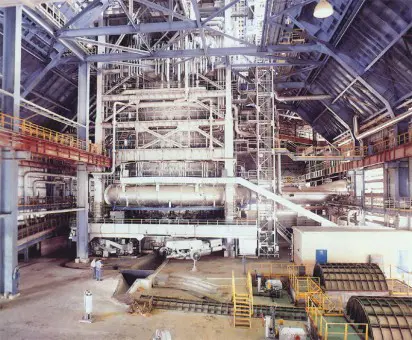Iron is at the heart of every industrialised economy, yet Nigeria continues to underexploit its vast deposits of iron ore and relies heavily on imports to meet domestic demand. This dependence drains scarce foreign exchange, stifles industrial growth, and undermines the country’s ambition of building a self-sustaining economy. If Nigeria is serious about industrialisation and long-term prosperity, it must urgently ramp up local iron production and transform the sector into a pillar of economic development.
The importance of iron cannot be overstated. It is the backbone of construction, infrastructure, automotive manufacturing, energy, and defence. A country seeking to expand its railways, build modern housing, and develop a robust manufacturing base cannot afford to rely on external markets for such a strategic resource. Nigeria possesses some of the largest iron ore reserves in Africa, particularly in Kogi, Enugu, and Zamfara states. Yet decades of neglect, policy inconsistency, and corruption have left critical projects like the Ajaokuta Steel Complex dormant, denying the nation an opportunity to harness its mineral wealth.
Boosting iron production would trigger a chain reaction of economic benefits. It would create thousands of jobs, not just in mining but in steel processing, engineering, construction, and transport. It would lower the cost of raw materials for local industries, making Nigerian goods more competitive both at home and abroad. A vibrant iron and steel industry would also position Nigeria as a regional supplier under the African Continental Free Trade Area, enhancing export earnings and reducing the continent’s dependence on external markets.
For too long, Nigeria has paid lip service to reviving its iron and steel sector. The focus must now shift from rhetoric to practical solutions. This means attracting credible investors, both local and international, through transparent policies and favourable incentives. It requires upgrading infrastructure—roads, railways, and power that supports mining and processing operations. It demands the political will to address the inefficiencies that have crippled Ajaokuta and similar ventures, turning them into engines of growth rather than monuments to failure.
Equally important is the need to integrate research, innovation, and local content into the sector. Nigerian engineers, metallurgists, and universities should be central to developing technologies and skills that will sustain iron production. By building capacity at home, Nigeria reduces its dependence on foreign expertise and ensures the benefits of industrialisation remain within its borders.
The global economic landscape is shifting, with countries racing to secure resources critical to infrastructure and manufacturing. Nigeria cannot afford to lag behind while sitting on untapped reserves. By ramping up iron production, the nation can lay a solid foundation for industrial transformation, reduce its reliance on imports, and drive inclusive economic growth.
Nigeria’s future cannot be built on oil alone. It must be built on steel, cement, and innovation. Among these, iron is the indispensable starting point. The time to act is now.





